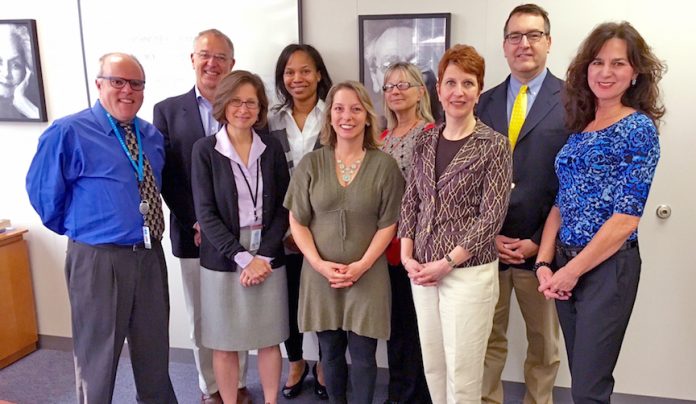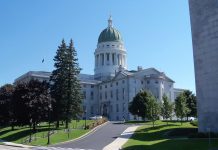
(Editor’s note: This article appears in the current July/August 2016 print edition of Boston Spirit magazine. Subscribe for free today.)
May 11, 2016 was a landmark date in Massachusetts, even though there wasn’t any fanfare and probably most people were not aware that anything occurred. At the same time, what happened was of historic significance. On that day the Executive Office of Elder Affairs (EOEA) amended a standardized form known as the Complete Data Set (CDS) to include two new questions: one on sexual orientation and one on gender identity. For the first time in Massachusetts history, LGBT older adults will be counted in the state’s aging services data.
Prior to that date there had never been any attempt to capture information about LGBT older adults in the state’s elder service assessment tools. In fact, it could be said if you are not counted, you don’t count. And it could also be inferred that if you are not counted the state doesn’t care. The CDS is an assessment tool to determine an elder people’s income eligibility and their need for homecare services. The data from these forms are used to determine the funding for specific elder programs. So if you aren’t counted then you aren’t funded either.
Of equal importance is the opportunity for elder service providers to learn about the unique health disparities and lack of support and caregiving services for LGBT older adults compared to their heterosexual peers. Collecting this critical sexual orientation and gender identity (SO/GI) information will be able to bring culturally competent care and services to a population that is greatly underserved.
When The LGBT Aging Project goes out into various communities across the state to offer its Cultural Competency Training Program on LGBT Older Adults, its representatives are often told by agencies that they don’t need to do the training because they don’t have any LGBT elders in their community. Perhaps they really believe this because prior to May 11 there was nothing to capture the LGBT senior community in any intake, data or assessment forms. LGBT elders were simply invisible to the elder care system.
The change in this statewide assessment tool came as a result of one for the major recommendations coming out of the Massachusetts Special Commission on LGBT Aging. In the fall of 2015 the commission recommended that “The Executive Office of Health and Human Services, The Executive Office of Elder Affairs and The Department of Housing and Community Development should collect voluntary and confidential sexual orientation and gender identity data as a standard practice for individual assessments.” It is important to note that the CDS is rarely changed and the addition of these new questions is a powerful statement of how important this issue is to EOEA and how supportive they are of the LGBT community.
This practice reflects a larger trend in the collection of SO/GI data by health centers across the country. The Fenway Institute at Fenway Health has been one of the nation’s leading organizations driving this game-changing policy on a federal level. In the coming months, the Centers for Medicare and Medicaid Services will be requiring SO/GI data fields in electronic health records software. The Health Resources and Service Administration (HRSA) started in May 2016 requiring that community health centers collect SO/GI data from their patients. Currently, in addition to Massachusetts, New York and California are the only other states starting to collect SO/GI data in aging services.
In the years ahead, LGBT older adults will increasingly appear on the radar screens of elder service providers and planners in every town across the state. This has a direct impact on agencies’ need for cultural competency training in LGBT aging issues, as well as their need to provide services and resources to meet the needs of LGBT older adults. Soon we should see such additions like LGBT-friendly meal programs, support groups for older adults living with HIV, and maybe even “lavender teams” that specialize in bringing skilled, competent care into the homes of LGBT seniors. Soon we will be able to respond to the towns that tell us they don’t have any LGBT elders by saying “in fact, the CDS data shows that you have 27 gay men, 31 lesbians and 12 transgender elders all over the age of 65.”
Like anything that involves change, this new effort is not free from its challenges. For our current population of LGBT elders who have spent their lives in secrecy hiding their identity, it may be a shock to be asked these questions. It is important to know that the case managers who conduct these assessments in the homes of older adults are instructed to tell their clients that they do not have to answer any questions they don’t want to. So the SO/GI questions, like all the other questions in the CDS, are voluntary.
Change is never easy at first. There is often resistance and confusion, but from that place growth occurs. In this case, the initial pushback to the sexual orientation and gender identity questions will soon give rise to a whole new commitment to the care and support of this cherished and vulnerable part of our community. LGBT older adults are the keepers of our history and a cherished asset. They deserve to be counted and cared for with respect. [x]
Bob Linscott is the assistant director of the LGBT Aging Project at the Fenway Institute.








